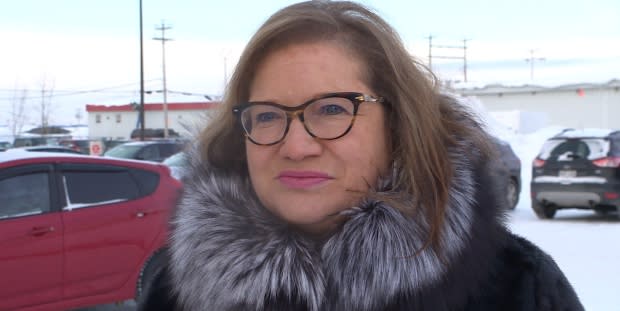Carbon pricing won't cost N.L. as much as rest of Canada, says MP Yvonne Jones
Carbon pricing comes into effect across Canada on Jan. 1, but some of the related costs won't be felt as keenly in Newfoundland and Labrador, says Labrador MP Yvonne Jones.
Part of the purpose of the new anti-pollution measures is to incentivize cleaner energy sources and encourage less use of high-carbon fuels, Jones told Labrador Morning.

"What we've decided to do as the government of Canada is to ensure that as we grow the economy that we also protect the environment, and adding a price on pollution is a part of that."
However, because Newfoundland and Labrador mostly uses a renewable, less-polluting source of energy — hydroelectricity — its provincial carbon plan was able to build in exceptions that will keep prices for high-carbon fuels like gasoline and diesel from going up too much once national pricing comes into effect, she said.
For example, Jones said, several communities in Labrador rely on diesel power, but that fuel has been exempted from the province's carbon plan.
"That will not receive a pollution pricing tag," she said.
The same is true for the aviation fuel many Labrador communities depend on to bring goods for several months of the year.
Lower increase in gas prices
In some parts of Canada, gas prices could go up by four cents a litre on Jan. 1 as the new carbon pricing takes effect, Jones said.
What we've decided to do as the government of Canada is to ensure that as we grow the economy that we also protect the environment, and adding a price on pollution is a part of that. - Yvonne Jones
However, that increase will be only about a cent in Newfoundland and Labrador, she said. It's true that gasoline use is an important area to target to reduce carbon emissions, she said, but the province's new gasoline taxes will replace ones that already existed, meaning the price difference will be minimal.
"Under the federal plan that was allocated," Jones said of a gasoline tax, "but the provincial government was able to reduce taxes on fuel that they had implemented during budget restraints, and as a result I guess it's kind of balancing out."
Jones estimated that fuel costs in Newfoundland and Labrador will go up by a cent or a cent and a half per litre in the new year, well below the increases expected for other provinces.
Announcement next week
The carbon pricing won't have a significant financial cost for consumers in the short term, Jones said, but affected businesses will notice a change come Jan. 1.
The Iron Ore Company of Canada, said Jones as an example, is one of the highest carbon producers in the country, and they will have to pay a price on pollution.

At the same time, she added, the IOC has begun to do things like install new technology and upgrade its systems to reduce its carbon impact, which will mitigate some of those costs.
"We are going to be there to work with companies like that under our clean energy programs and help them adapt to other modules and new innovative techniques that will allow them to reduce carbon," she said.
The government also wants to work with communities that want to cut their carbon footprint, she said. Incentive programs will be provided for communities working on projects like alternate energy sources, and the three Indigenous communities in Labrador are engaged in this work, she said.
Black Tickle, for example, is dealing with a reported diesel fuel shortage. It's a small, contained community with a low energy requirement, so in the future it may be possible for it or similar communities to switch to lower-carbon energy, Jones said.
"It is a perfect example of where we could be doing alternate energy projects."
Next week, Jones will announce several programs led by Indigenous governments to support climate action in Labrador.
With files from Labrador Morning
Read more from CBC Newfoundland and Labrador

